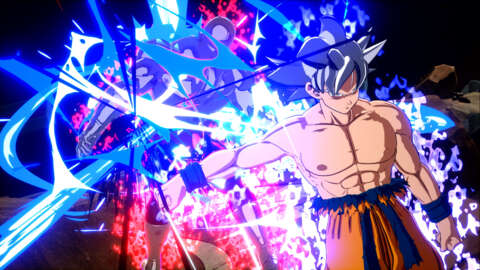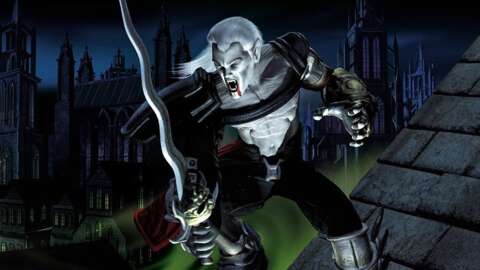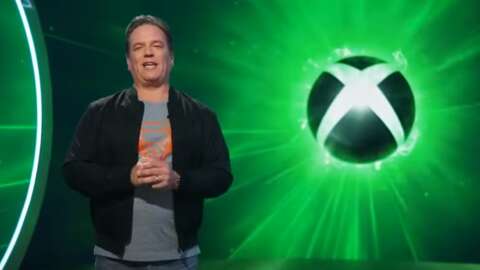The Dragon Ball franchise has seen its share of video games throughout its history, but none make players pine for the past more than the Budokai Tenkaichi series of fighters. Despite robust story-based adventures like Kakarot and the frantic 2D madness of Dragon Ball FighterZ, fans still long for the behind-the-back, go-anywhere feeling of the PS2 era. Later this year, Dragon Ball Sparking Zero is finally answering the call, and we recently visited Bandai Namco at Summer Game Fest to get our hands on the future of Tenkaichi.
Our hands-on session allotted us about 30 minutes of Versus Battle gameplay, where we could choose a team of up to three warriors–for both ourselves and the CPU–and a stage to fight in. The available roster for our demo included more than 50 characters, with the selection ranging from multiple forms of Goku and Vegeta to others with just one form, like Majin Buu and Hercule Satan.
One notable wrinkle in roster selection from past Tenkaichi games has returned: Unlike in Dragon Ball FighterZ, where no restrictions exist, Sparking Zero will disable all forms of a selected character after they’ve been chosen. For example, if you choose Super Saiyan God Goku, you can’t then select Super Saiyan Blue Goku as your next character. This is because Sparking Zero, like Tenkaichi games of the past, allows you to shift forms up or down in the heat of battle, so once you select one form of a character, you technically select them all. The game is careful to separate eras from one another, however, as you can pair Super Saiyan God Goku from Dragon Ball Super with Super Saiyan 3 Goku from the Buu Saga.
Speaking of the past, as each battle began, a wave of nostalgia hit us like a Kamehameha; Sparking Zero’s combat feels exactly like the PS2-era Tenkaichi titles. From control scheme to movement, it felt like getting back onto a bicycle for the first time in a long time, and that familiar feeling serves the game well. Before long, we were executing long combos with multiple phasing transitions and feeling like a total badass Super Saiyan in the process, which is exactly what we were hoping for.
Part of that badass feeling comes from each arena’s dynamic destructible environments; there’s something satisfying about not only landing a complex combo string, but for the final hit to be coupled with a massive rock structure being turned to dust because we sent our opponent flying into a cliffside. Some of the larger energy attacks can even obliterate an entire stage–in one battle, Vegeta’s Final Flash turned an idyllic countryside into a magma pit.
Golden Frieza
Environment destruction is nothing new for the Tenkaichi series, of course, but Unreal Engine goes a long way in making that destruction feel more authentic and impactful. Structures crumble into pieces at the point of contact rather than with a canned animation, which makes launching a hapless foe through a building even more enjoyable.
This does create an annoying issue, however, and one that surfaced a few times throughout our hands-on session: The destroyed structures sometimes take a while to disappear from view, meaning that the camera sometimes gets blocked by a piece of debris and you lose sight of the characters. The problem with not being able to see either fighter thanks to a newly destroyed piece of the environment should be obvious, and we’re hoping that gets ironed out before October.
While these weren’t part of the playable demo, the briefing we received beforehand did share details on two other modes coming to Sparking Zero at launch. The first is Episode Battles, which are distinguished from previous Tenkaichi titles, where you relive the story of Dragon Ball while fighting the key battles along the way. This is something we’ve done many times in Dragon Ball games before, but this time there’s a twist: Player decisions can influence how certain battles play out.
The example given to us during the briefing involved the Raditz story arc; just after Raditz apprehends Gohan and escapes, Piccolo appears and offers Goku his services in defeating the Saiyan menace. You can then choose to accept Piccolo’s offer–and thereby follow the show’s canon–or choose to refuse it, which then leads to a “what if” scenario where Krillin joins Goku in the battle to rescue Gohan. How the ensuing battle plays out was not shown, but considering what happens with Piccolo, we’re wondering if Krillin’s involvement is the same–and what the story implications would be moving forward.
The other mode choice described in our briefing was Custom Battle, which follows a similar approach to Episode Battles, only now, you can create all of the relevant parameters: who is fighting, where they’re fighting, what the name of the scenario is, what special rules it must follow, etc. You can then share our scenarios with others online and find other players’ creations to challenge yourself. Custom Battles are a neat addition to the formula, and we’re curious what sorts of over-the-top scenes players will concoct once the game is in their hands.
While its name might not explicitly say “Tenkaichi 4,” Dragon Ball Sparking Zero is the return to that old format fans have been clamoring for since the late 2000s. Its furious action and massive roster hearken back to those glory days, while the influx of new characters and modern tech do an impressive job of bringing the format into the current era. With Episode Battles and Custom Battles also in the mix, this latest Dragon Ball game is positioned to live up to expectations.
Dragon Ball: Sparking Zero launches October 11 for PlayStation 5, Xbox Series X|S, and PC.



